Charlotte Bat Removal
Welcome to Charlotte Bat Removal! We are North Carolina bat removal specialists. It is important to know that bats are protected by North Carolina law, and are beneficial animals to have in the environment. We do not kill any bats during our bat removal process. Never hire a pest control company or anyone who says they are a Charlotte bat exterminator. For correct and effective bat removal, you want a company that specializes in humane bat colony extraction. Our process is not only the only legal method in North Carolina, but it is the most effective. We have a 100% success rate in our bat control process. We perform our industry-best 32-point inspection of your house or building, and seal shut all bat entry holes down to 1/4 inch as part of the removal process, during which we remove the colony via special one-way exclusion devices specific to your architecture. Once all bats are safely out, we permanenetly bat-proof the structure. We also provide guano (bat droppings) removal and decon. Click on our Charlotte Bat Control Prices page to find out more about our prices for bat control work. We work 24/7/365, and would love to talk to you about your bat problem. Call us any time at 704-288-0446 to discuss it, discuss our pricing, and if you wish, set up an appointment at your convenience, often same-day.
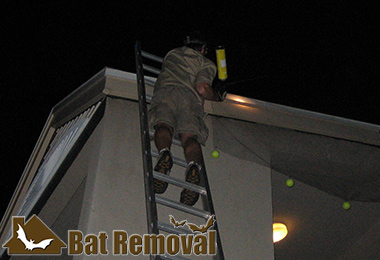
Charlotte Building and Attic Inspections
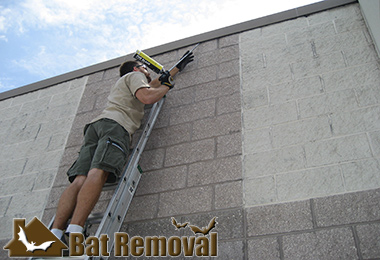
No-kill North Carolina Bat Extraction
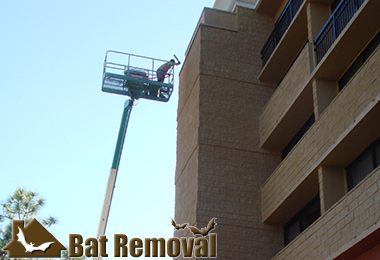
Guano Cleanouts - Serving all of North Carolina
Call 24/7 to discuss your bat problem.
Same-day or next-day appointments.
32-point inspection of your property.
Written estimates for bat removal project.
Fully state licensed and insured.
Residential and commercial service
100% no-kill Charlotte bat extraction
Complete bat-proofing of your building
Compliance with all North Carolina, federal laws
Guano removal and attic decontamination
Our Service Range - 704-288-0446
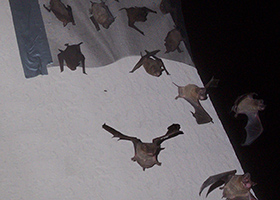
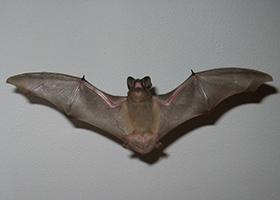
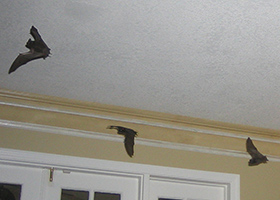
4 Natural Habitat of Bats
The bat is known for its incredible adaptability skill. Nonetheless, it is very particular when looking for its habitat. This makes them vulnerable to habitat degradation and urbanization. Usually, they will look for a place that is safe from the weather element and attack of their enemies. The place should also be close to a water source that will attract insects. Therefore, they can be certain that they will have enough supply of food.
Different Habitat of Bats
Federal law protects the bat from unwarranted eviction. You are not allowed to disturb the bats and their roosting site especially on nesting season. Special permit will have to be secured before you will be allowed to perform removal and exclusion.
1. Caves
Usually, bats will choose to live inside the caves. The colony of bats in the cave can include millions of bats. They will choose to roost in the highest point of the cave where the temperature will be stable. Caves protect them against their natural enemies such as hawks or owls. It is also a perfect hibernation spot once the temperature drops. Bats are social creature and it will not be rare to see a large congregation of bats in a single cave.
2. Abandoned Mine
Abandoned mines resemble the features of the cave that makes it an excellent roosting ground for the bats. This provides the bat a suitable environment that comes with a free food and security from the predators. Since the place is abandoned, they do not have to worry about any disruptions caused by humans.
3. Human Structures
Due to urbanization, more and more bats are roosting in the human structures. One common place where you can find them in the urban areas would be under the bridge. While the place will not provide them the same level of protection as the cave or mines, it is still close to water that gives them plenty of nourishment. They can also move inside our house and abandoned building. They will invade the dark and obscure areas of our house that mimics the ambiance of the cave. You may find them in the basement, in the void of our walls, chimneys, and on the attics.
4. Trees
Some bats will choose to roost under the large trees or inside the hollow of the trees. The leaves of the trees will help them remain hidden from the sight of the predators. However. This type of environment still presents some adversities on the lives of the bats. For instance, if they are roosting on the trees in the parks or wildlife areas, this is a common place for humans to go bird watching or camping. This can potentially disrupt the lives of the bats.
Bats will develop a certain connection to their habitat. In fact, they will return to the same roosting ground after their migration or hibernation. It is essential to protect the natural habitat of the bats to ensure that their population will remain stable.

